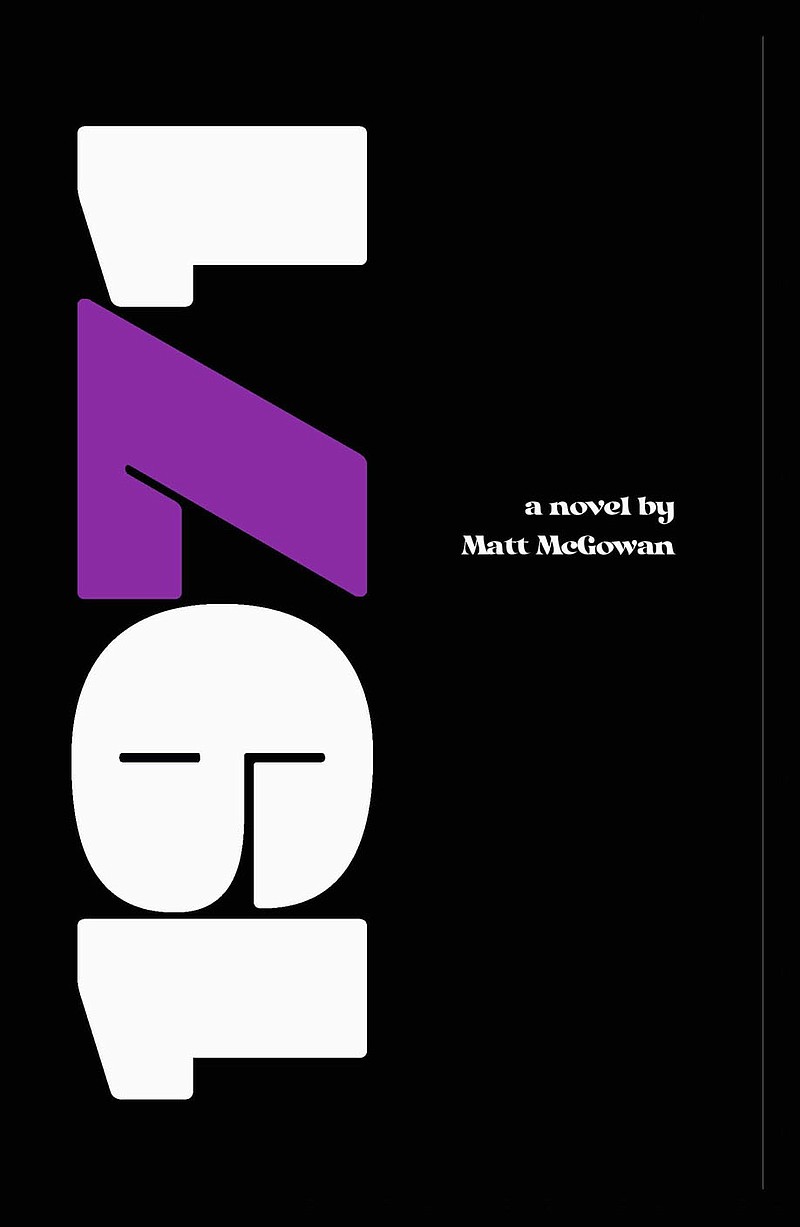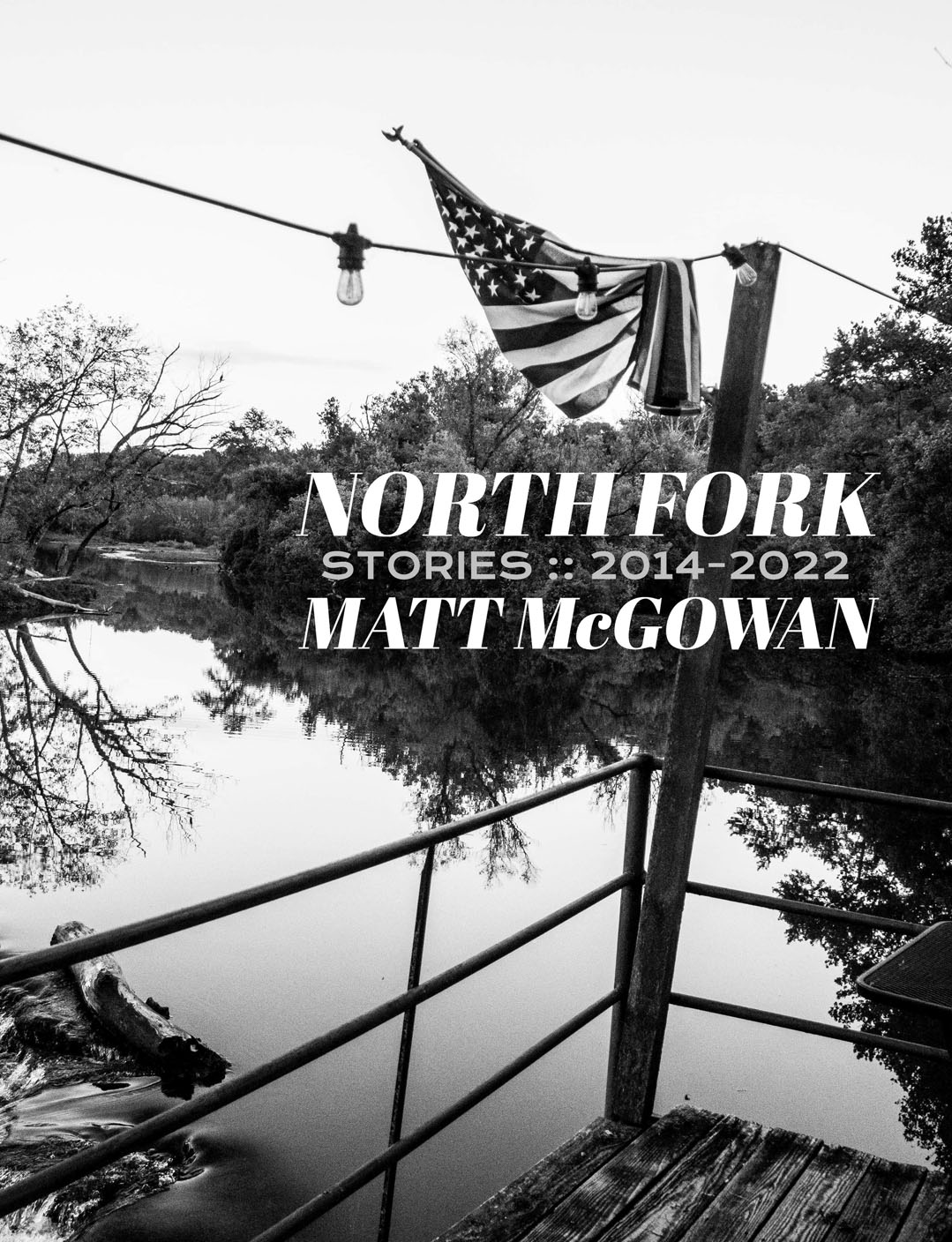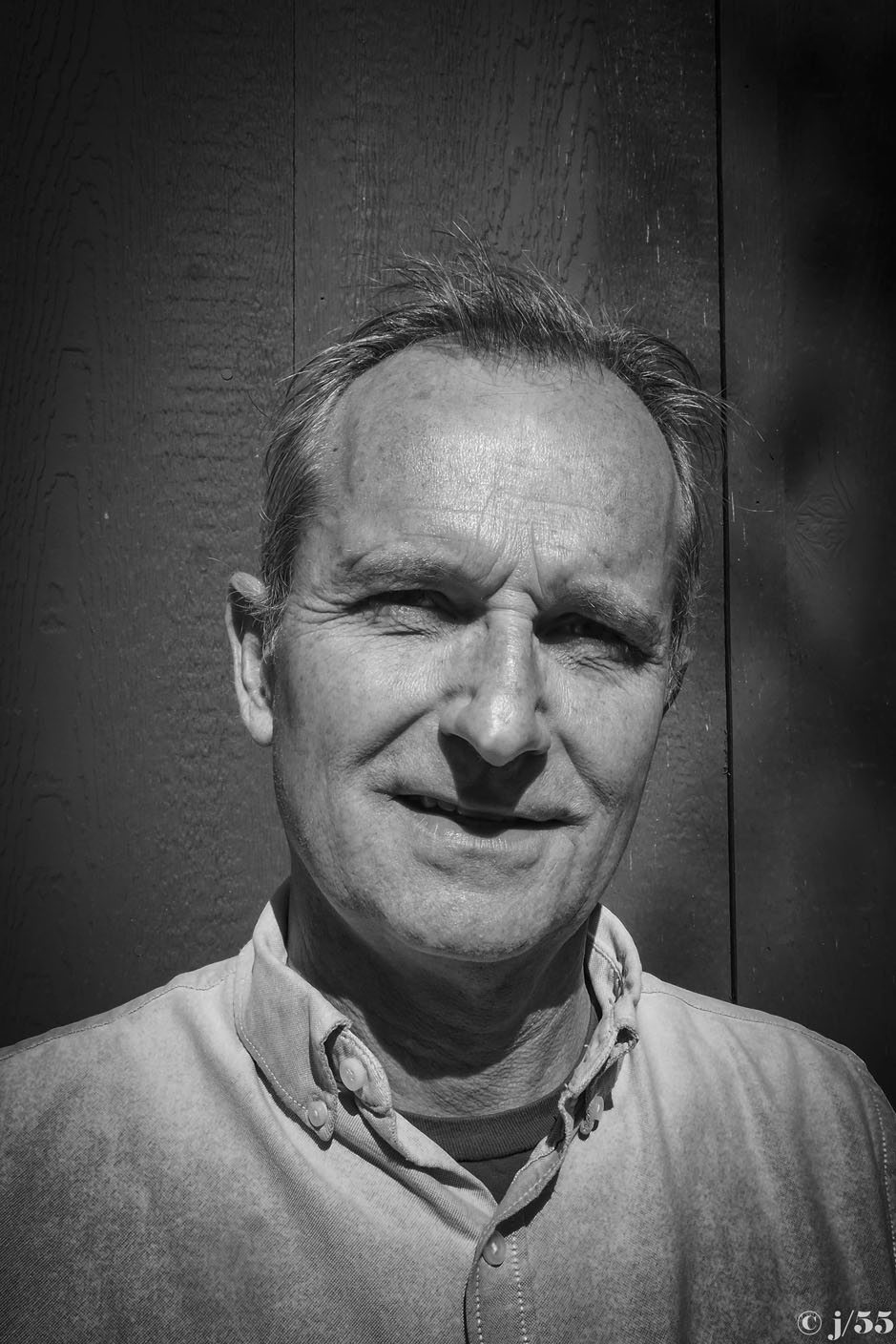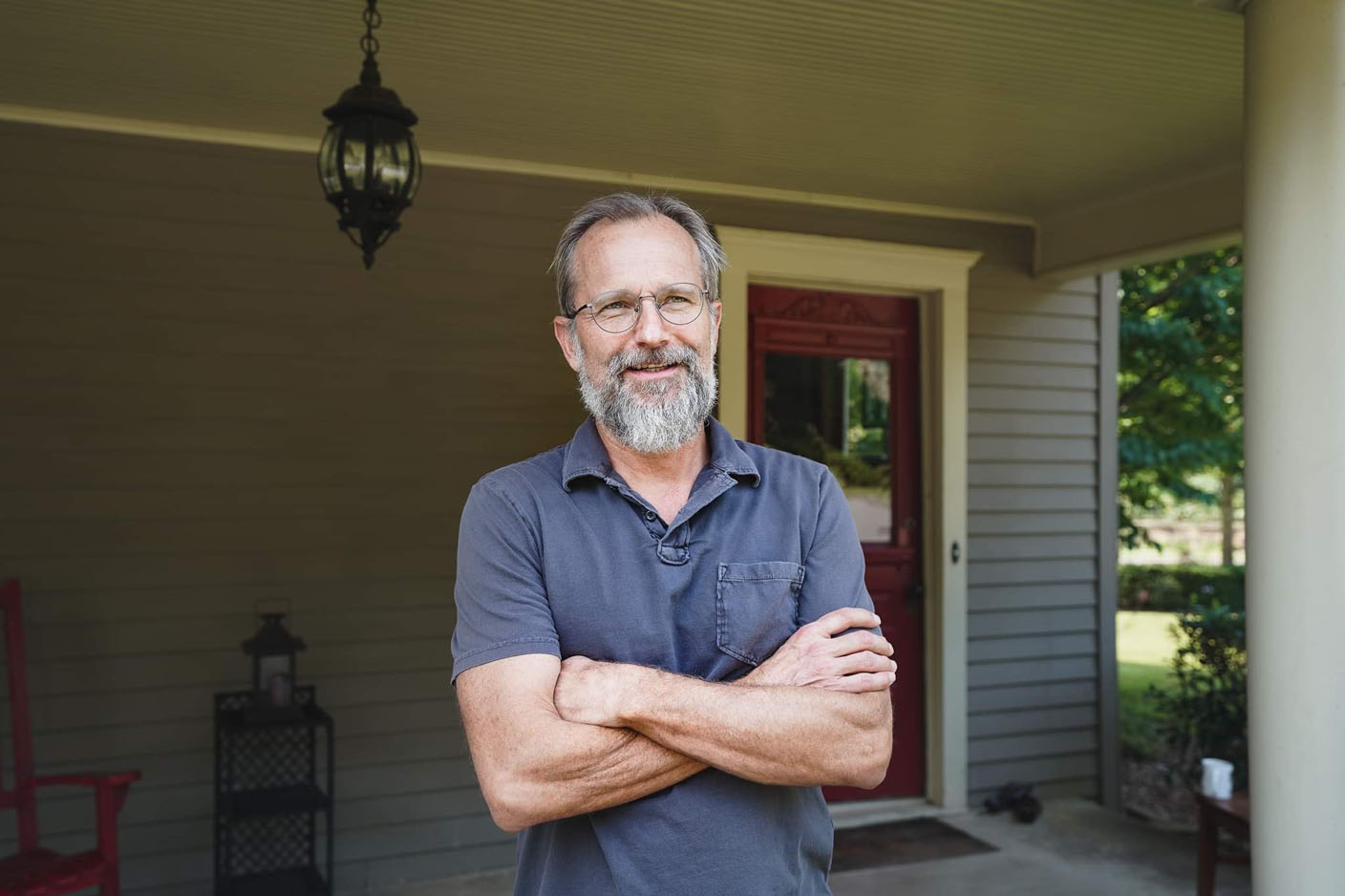Local author Matt McGowan has published two books in the last couple years, the novel "1971" and "North Fork Stories :: 2014-2022." Lately, he's been giving author talks at local bookshops and opened programming for the Northwest Arkansas Book Fest in Rogers earlier this month.
I sat down with McGowan in our newsroom's podcast studio to talk with him about his stories and craft, how he got started as an author, where he finds inspiration and more in this interview for Hidden Gems.
I've enjoyed reading "1971." Your lyrical style and the dialogue in it makes it interesting, engaging and an easy read -- in a good way. Tell me about your writing style and your background as a writer.
My background is in journalism. I don't think I've ever had anyone say that my writing is lyrical, so that's exciting and flattering. I don't know if I've thought of it that way myself. It all seems rather plain and pedestrian while I'm doing it.
In terms of how I process and reach that final product, it's really just a lot of practice and repetition for me.
Unfortunately, I'm not the kind of writer ... who can visualize, or achieve or execute something close to the final product on the first run. (For me) it's just been ... a lot of drafts, a lot of revisions, a lot of editing.
I really benefited from getting a little bit of humility and trusting that editors are looking out for me instead of trying to, I guess, stake their own claim in some ways.
Who does the first read on your works?
Ninety percent of the editing is by my wife, and she's really good at it. She's a writer herself, she has a really critical eye for what needs to be said and what's sort of fatuous. So I quickly learned to trust her instincts. I can't really trust my own -- on the first run anyway. I'm getting better at that.
A lot of times, we would have conversations about ... this should this be cut? Not arguments but conversations, sometimes pretty intense conversations. Ninety percent of the time I was following her advice on her suggested edits; a few times I was like, 'No, I've got to hang on to that.'
When you have discussions with your wife and she suggests a cut, does it help you think through why that's important to story or character, or to solidify your voice?
Not really ... it just, I think it allows me to stay on track. I don't change direction. It's a matter of making a decision about what's true to the character ... these are my characters, I created them, I have an idea about who they are and what their motivations are, and I have strong opinions about this.
What she's doing, it's a fascinating process, (is to ask) "Are those motivations or actions legitimate in terms of probability?" So to stay true to myself and true to my character.
In your first book, "1971," the young character Bud is abandoned by his stepmom on the doorstep of Hershel, and they have a special relationship. How did they arrive or stick around in your mind before you put them on paper?
That relationship arrived in 1967, the year I was born. That character arrived in a different (version of the) story ... it started out as a short story and then it turned into a novel. But that relationship between Bud and Hershel, it's fair to say that was based on my relationship with my paternal grandfather. I was kind of his favorite. He wanted me to be with him all the time, and he was a farmer, and so I used a lot of that.
It makes sense to me as a reader with the way you write about being on the farm. It's as if you've had these experiences.
I had back then ... I left the farm so to speak at age 7 or 8. My parents grew up on a farm, but they were not farmers, so I was just playing around on the farm as a kid, but I remember a lot about it. The animals, the origin of life and death, things like that, and a lot of the hard work, watching my grandfather (in) those developmental years. I have a lot of memories from that time. That seems to be an inspiration ... for a lot of my stories, I guess.
How does the short story version differ from what you turned it into for the book, the novel?
I just didn't know how to finish the short story, and that's a chronic problem. I'm dealing with that right now. I just, I sat down to finish it and didn't and just wrote another day's worth. The next day, I sat down to finish it and wrote another day's worth. Then at some point I kind of opened my eyes to the realization that this is a long story. A novel length story.
Your book "1971" is written in brief segments, very short chapters. Is that essentially the length of your daily writing?
Pretty close to that, for the most part. In terms of the novel, those in some ways can be viewed as independent stories that were attacked on a daily basis. I didn't plan it this way, but they seem to be getting shorter toward the end, too. I've noticed that in stories recently, the story seems to move faster toward the end, and that does something to ramp up the anticipation or the drama. That wasn't intentional, but the chapters for the most part do line up into one day's work of writing.
When you end a chapter, do you do it by feel or are you going for a certain length?
More by feel, although generally in the back of my mind I know how long it needs to be. My favorite quote in terms of the daily output is from one of my favorite writers, "God, I'm not greedy, just give me the next 500 words." And that meant a lot to me. Like, 'Oh, I can do that. I can write 500 words today.' I can write more than that, but I also have kids, I have a job, I have other responsibilities, but 500 words is reasonable. It's all about trying to convey ideas, of course.
How did you get started in fiction? What made you want to give it a try?
I had always been a writer, but never (written) fiction. That always seemed intimidating and too big a task; it was scary. I couldn't imagine fabricating a story. But then I realized that some people do it that way, but that's not the way I write.
At some point, I think it boiled up within me. I was in graduate school and floundering around again, and I was just going crazy. I ... finally decided to try to tell a story. And it was not pretty and painful and not even a story.
As soon as I started doing it, (though) it was like 'OK, this is what I'm supposed to be doing.' I didn't have any big plans, or ideas about what would come of it, I just liked doing it.
I'm pleased to say that's still the reason I do it. I would do it regardless of whether anybody read it because it's just the way I make sense of my life. It's like meditation, actually is meditation.
Now that people are reading your stories on a wider scale, what are the responses about your characters? Has anything helped you form your next story ideas?
That these stories are easy to understand, they're relatable, I guess. I've had many people tell me that they can see the places I'm writing about, the descriptions of the physical world. Less so with the feelings people have, but more so with the descriptions of the Ozarks.
A lot of fiction is character driven, I would say mine is ... and the place is extremely important. Home is extremely important. For me, it's the thing that's driving me. Geographically, in my writing, when I get far away from the Ozarks, I feel like it's less authentic. The character has to be referring to Missouri and Arkansas. Mostly because I was here when I was very young, (that's) what I know.
That's been really gratifying to hear people say they can see these hills, see these rivers, lakes, trees, in my stories. I really like that a lot.
You've done author talks and NWA Book Fest recently. What are those experiences like for you?
Surreal... It's just astonishing and stunning and unbelievable. For them to respond ... and to get to elicit some sort of emotion in other people, it's evocative in some way, that's the thing that's surreal.
It's not just standing up in front of people and reading a story, it's this person telling me about how she related to a character, because that kind of thing happened to her. She could feel how that character felt, that kind of thing, a similar thing happened to her as a child. That just makes me tear up. It fills me with gratitude to the point where I can hardly function. It's really been wonderful.
What's the difference between your first and second books?
The second was written before the first one. "North Fork" is a collection of stories, 22, most of those were written and published in inferior condition in reviews and journals before I published the novel.
I thought it was going to be easy, but I went back and edited those stories some more to get them in publishable condition for a collection. That was more of the same process of editing the novel (and) in some ways even more intense.
Short stories are more of a higher standard. There really wasn't a big difference there.
Are there any plans for a third coming down the pipeline?
I wanted to be able to say that I finished the manuscript for a new novel today, as we speak. But again I can't seem to end this thing. It was just another day's work, and the way I left it three hours ago, I don't think it's going to end tomorrow either. *laughs* This one's making me nervous. I don't know how to end it. It'll come to me pretty soon.
How can we find your books?
At Pearl's, a wonderful independent bookstore in downtown Fayetteville just off the square, on Center Street. Daniel and Leah, (the owners) there, are wonderful people who have been good to me. They have copies of "North Fork" and "1971" available there and also on Amazon.
__
Listen Here!
More News
NoneListen here!
Hear more of this conversation between author Matt McGowan and editor April Wallace at




